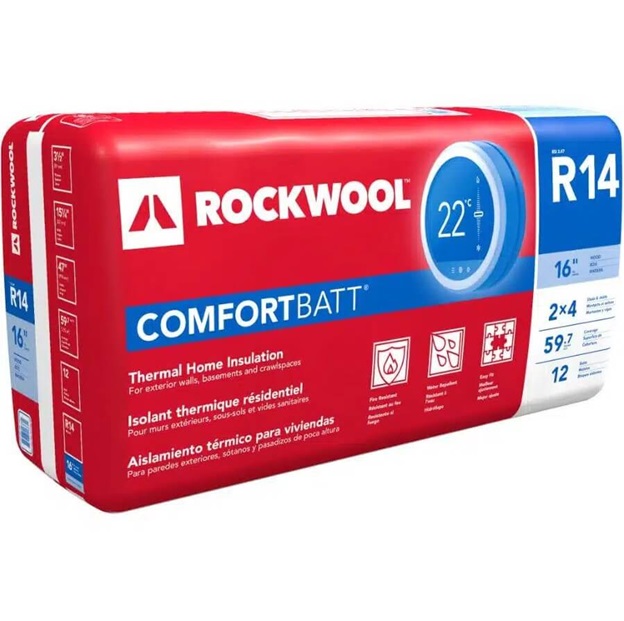Rockwool, often referred to as wool mineral, is a substance commonly used to reduce noise and insulation in residential and commercial environments. It’s widely praised for the remarkable isolation from sound (and fire-retardant) characteristics its mineral fiber composition boasts. It’s not a surprise, then, that it’s been employed in various construction for over sixty years.
The mineral fibre (or wool) insulation is made of raw materials like diabase, basalt, and dolomite.3 These are common minerals found in rocky volcanic areas and limestone deposits. This means the components that make up rockwool can be easily found and naturally occurring. More and more, mineral wool insulation is made of partially recycled scrap materials, like charcoal briquettes from the past.
It also has an extremely basic manufacturing process. In simple terms, raw minerals and recycled scraps are melted and then twisted into strands using mechanical rolling rollers (hence the words wool or fibre). The fibrous strands of fibre are later compressed and formed into dense mats, with the leftovers melting back to close the loop of recycling instantly.
The ease of production of rockwool is that it’s typically made close to the point where it’s installed and leaves only a tiny carbon footprint. Minerals aren’t harmful to the respiratory system (a commonly held belief) or associated with other health issues. Rockwool is also available in hard and easy-to-handle boards, which are simple to install when compared to the annoyance of swollen, itchy fibreglass insulation.
Is Rockwool Good for Soundproofing?
There’s noise, and then there’s loud! Although it’s not accurate to be in a room filled with ear-splitting sounds, you have to be sure that the music will be heard regardless of when it gets unbearable.
The insulation of rockwool blocks sound transmission from the walls by reflecting it back toward the source. The dense nature of mineral wool’s fibres stops sound from leaking through surfaces and keeps it within an area. Mineral wool is used in the creation of sound. However, it is used to manipulate and dampen sound within the space, not to contain it.
Soundproofing ROCKWOOL insulation is an unparalleled soundproofing solution with unrivalled benefits. Thanks to its unique composition and manufacturing process, it makes an exceptional choice for reducing noise pollution in various settings while increasing insulation levels.
Soundproofing together Rockwool in the Practice
When installing an entirely new roof over the Queen Elizabeth Stadium in London (the principal venue for the 2012 Olympics), the stadium’s acoustics were a top priority. The project’s architects considered the possibility of a retractable, concave shape that could reflect the noise of the crowd and create a pulsating ambience inside while preserving the peace of the surrounding zone. To create the perfect environment for music lovers and sports enthusiasts, the stadium’s renovations were converted into rockwool.
Although containing the chants of sixty-six thousand is definitely a remarkable feat, it’s just one aspect of the possible applications for rockwool.
Rockwool can be used in schools to reduce classroom noise and stop an increase in ambient noise in common spaces. Educational institutions must meet requirements regarding both exterior and interior volume, and sound insulation can help keep buildings in line with code.
Concert Hall designers upgrading
The Royal Academy of Music in London chose to install mineral fiber insulation for the walls and roofs of their magnificent design. The purposeful placement of acoustic surfaces in the halls of performance channels sound into the audience without echo or echo. In dressing rooms and practice areas, rockwool blocks the sound and lets musicians get warmed up freely.
Subway Systems
To reduce the noise of trains coming in and the rumbles of the rush hour crowds, Farringdon Station in the London Underground is built with rockwool tunnels, walls, and ceilings.
Commercial Buildings
Whether creating soundproofed office spaces in malls, shopping centres, or industrial complexes, rockwool can block out the sound generated by human interaction, equipment, infrastructure, and other machinery.
Rockwool is an ideal choice for various commercial applications because of its soundproofing abilities and flexibility. It can be tailored to suit all types of environments and meet the specific needs of a company’s requirements for noise reduction.



